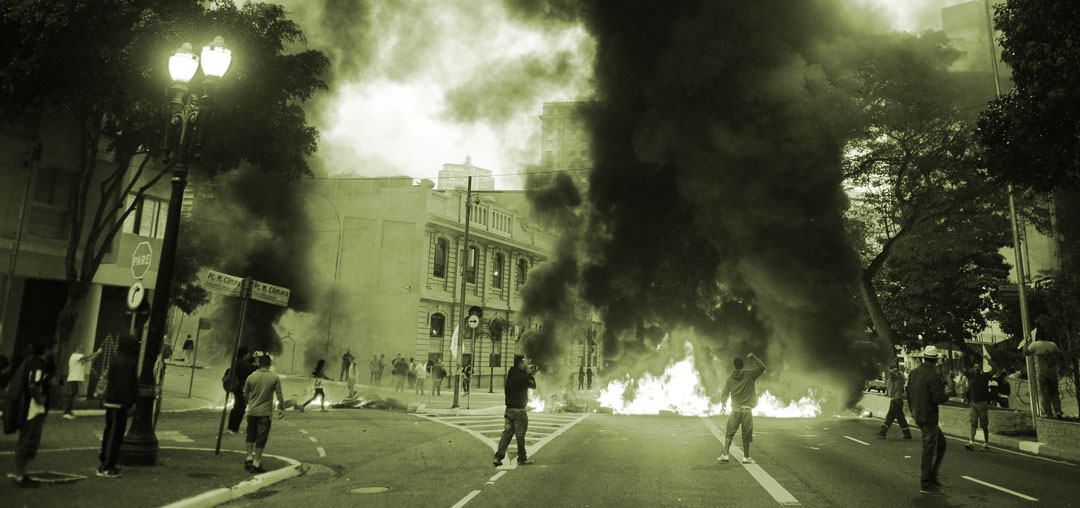During illegitimate, corrupt president Michel Temer’s attempt to implement an unnecessary extreme austerity regime that plunged millions of people below the poverty line and caused the UN to warn that Brazil may return to the World Hunger map, one of the most under-covered stories is the organized left’s efforts to resist the state of exception.
The Brazilian organized left is made up of a wide range of actors. Four of the main sectors are: 1) the union federations, with CUT and CTB as the most vocal with around 11 million members between them; 2) the popular (or “poor people’s”) social movements – the three largest being the MST, UNMP and CMP, with around 1.7 million members nationwide; 3) Brazilian NGOs many of which came up through the Liberation Theology movement of the 1970s and 1980s such as FASE, Geledes, CENDHEC and Instituto Polis; and 4) Organic intellectuals like Raquel Rolnik, Francisco Oliveira, Erminia Maricato and Marcio Pochmann.
These groups worked together during the massive anti-impeachment mobilizations of 2016- under-reported in the media – during the lead up to the coup. They held a series of democratic, voluntary assemblies and plenary sessions in every state of the union and developed a plan of action with two broad based resistance coalitions: The Frente Brasil Popular (Brazilian Popular Front) and the Povo sem Medo (People Without Fear). Whereas most of the actors, such as the MST and CUT, belong to both coalitions, the Frente Brasil Popular allows participation from left political parties such as PT, PSOL and PcdoB, while the Povo Sem Medo does not.
Liberation theology priests such as Frei Betto helped found The Central de Movimentos Populares during the late 1980s as social movement counterpart to the Central Unica dos Trabalhadores (CUT) labor union federation. It is made up of most major Brazilian popular social movements, representing the demands of rural landless workers, victims of hydroelectric projects, feminist movements, squatters movements and Afro-Brazilian rights movements. During the 1990s, it broke from the Catholic Church over the issue of LGBT rights and no longer has a religious affiliation. Today, the CMP has around 200,000 direct members in 24 states across Brazil.
Luiz Gonzaga “Gegê” da Silva, 67, is one of the national directors of the CMP. He is also a former anti-fascist rebel fighter and political prisoner from the Military Dictatorship era, a founding member of the Partido dos Trabalhadores (PT) Party, and former candidate for its national presidency on the Socialism or Barbarism platform. He has never held public office and has spent the last 30 years coordinating squatters occupations in empty, tax-scofflaw buildings in downtown São Paulo where he lives to this day in a former squat that was converted to social housing.
In this short film, which merges theory with praxis, Gegê talks about poor people’s right to live in the city center, how the Brazilian government has a [constitutionally mandated] duty to convert empty buildings to social housing, and how last year’s coup should be viewed as an ongoing process and not a single event that should be swept under the table and forgotten. We then follow Gegê with a group of squatters from the MMC (Movimento de Moradia do Centro), as they join with other social movement members to close off one of São Paulo’s main streets, Avenida 23 de Maio, with burning tires during the morning rush hour- one of thousands of similar actions occurring across the country simultaneously as part of the April 28 General Strike against illegitimate president Michel Temer’s state of exception and austerity reforms.
As the film closes, Gegê disappears into the crowd of protesters as it moves towards Largo da Batata in São Paulo.
Main Photo: Rovena Rosa/Agência Brasil
[qpp]

